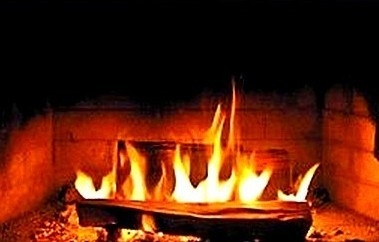(单词翻译:单击)

Would you watch a live broadcast of a seven-hour train trip? How about a weeklong cruise ship or hours of a fire burning in a fireplace? These might seem like unlikely candidates for primetime programming, especially in today's landscape of viral videos and on-demand viewing, but they're part of a hit phenomenon in Norway known as "slow TV."
你会看7小时火车旅行的直播节目吗?那为期一周的游轮之旅或木柴在壁炉里燃烧好几个小时的直播呢?在如今热门视频和自主观影的大环境之下,这类节目似乎都不可能放到黄金时段播出。但在挪威,这类叫做“慢电视”的节目却火得不得了。
Next up for slow TV: an evening of minute-by-minute knitting, Time Magazine reports.
根据《时代》杂志报道,慢电视下一期的节目内容是:直播针织大衣的所有过程。
In 2009, public broadcaster NRK aired "Bergensbanen," a program documenting a seven-hour train journey across the country from Oslo to Bergen, in primetime. The show was surprisingly successful, and a new Scandinavian reality TV trend was born.
2009年,挪威公共广播公司在黄金时段播出《卑尔根铁路》,一档记载火车穿越挪威从奥斯陆到卑尔根全程7小时的节目。这档节目收视异常成功,从此斯堪的纳维亚记录现实的慢节奏节目诞生了。
More than 3 million viewers (more than half of Norway's population of 5 million), tuned in for "Hurtigruten: Minutt for Minutt," a five-day live 2011 broadcast of a cruise ship traveling up the Norwegian west coast, according to Time.
《时代》杂志称,有超过300万的观众(挪威500万总人口的一半还多)收看《海达路德:分分秒秒》,这档挪威2011年新出的慢节目,直播一艘游轮在挪威西海岸航行五天的所有记录。
According to the Wall Street Journal, NRK is also considering a 24-hour live feed of construction workers building a digital clock out of wood.
据《华尔街日报》报道,挪威广播公司正策划一档24小时的直播慢节目,记录建筑工人如何使用木头制作数字时钟。
It seems like Norwegian television executives are trying to come up with the most boring ideas possible, so why are they breaking ratings records?
看起来挪威电视节目的主管在想尽办法把节目做得越无聊越好,但为什么这类节目还屡破收视率记录?
Rune Moklebust, who leads slow TV programming at NRK told Time that "this is a different way of telling a story. It is more strange. The more wrong it gets, the more right it is."
挪威广播公司慢电视节目负责人Rune Moklebust 告诉《时代》杂志:“这是另一种讲故事的方式。很奇怪是吧,但越不对劲,就越能迎合大众口味。”
In fact, a recent 18-hour live show of salmon spawning upstream received complaints from viewers for being too short, NPR reported.
根据美国国家公共广播的报道,事实上,最近一部18小时记录三文鱼逆水而上产卵繁殖的慢电视遭到观众批评,理由是节目太短了。
Norwegians "love slow," Arve Hjelseth, a sociologist at the Norwegian University of Science, explained to the Wall Street Journal. Watching slow TV is a "sort of celebration of the Norwegian way of doing things, which we believe to be slightly different," he said.
挪威科技大学社会学家阿尔沃向《华尔街日报》解释道,挪威人喜爱“慢节奏”。他说,看慢电视“就像庆祝我们挪威人的做事方式,而且挪威人也知道这点和其他人有些不一样。”
One installment of this particularly Norwegian programming might seem familiar to American viewers: "National Firewood Night," which showed a fire burning for hours in a fireplace, somewhat reminiscent of the Christmas Day Yule Log.
有一集挪威慢节奏节目对美国观众来说可能并不陌生:《国家篝火之夜》这集节目中展示了柴火在壁炉中连续燃烧好几个小时的过程,有点像是在怀念圣诞节的圣诞柴。
And Oystein Johansen, a critic at Norway's biggest daily newspaper, compared the experience to watching car racing.
而来自挪威最出名日报的批评家乔纳森,则把这种现象同观看赛车相提并论。
"People are watching just in case something happens," he told Time, adding that he himself got caught up in the train show and ended up watching it for hours with fascination.
他对《时代》说:“人们看这种节目就是等着看发生点什么。”另外他还说自己本人就被火车的节目迷住了,一直全神贯注地看了好几个小时。
Some also attribute the show's success to the sense of nostalgia it evokes among the audience. These programs harken back to simpler times in Norway, when simply knitting clothes or gazing at the landscapes were entertainment enough.
但有些人也认为这类节目成功的原因在于它勾起了观众的怀旧之情。这些节目带他们回到过去,那时的挪威更朴素纯洁。只是看看编织服装或户外美景就足以娱乐大众。


